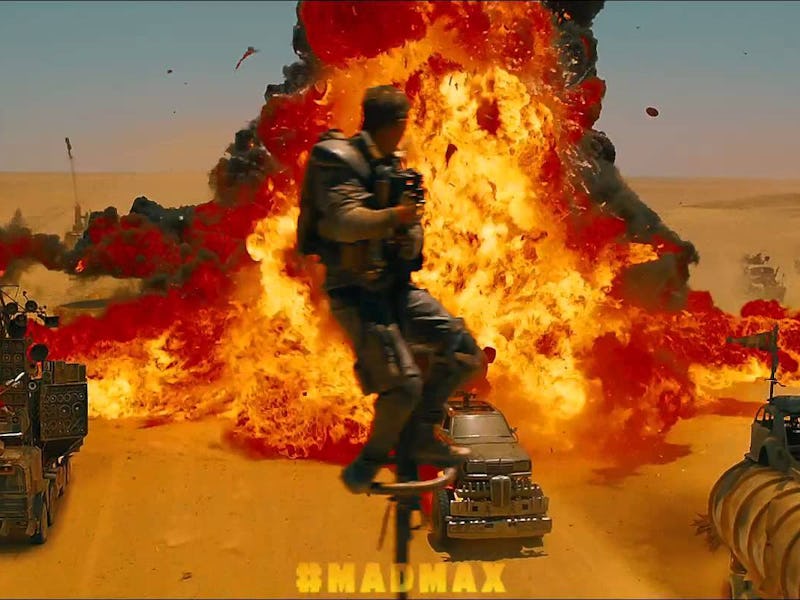How 'Moby Dick' Inspired the Sound Design of 'Mad Max: Fury Road'
A recent radio interview by sound designer Mark Mangini explained how the American lit classic made its way into the post-apocalyptic wasteland.

In a crowded sea of CGI-heavy blockbusters, Mad Max: Fury Road was a breath of fresh air for proponents of practical effects. And besides all the eye candy, there were plenty of awesome sound effects to listen to as well. The film’s sound designer, Mark Mangini, who’s nominated for an Oscar for Best Sound Editing, caught up with Southern California Public Radio station 89.3 KPCC and explained that he took his inspiration for the film’s organic sound effects from an American lit classic.
“I had this notion that the truck itself was an allegory for Moby Dick, he told KPCC. “ If you think about this a little bit, we saw Immortan Joe — the leader of the war party — as [Captain] Ahab. He’s hellbent on killing the great white whale — the War Rig.”
To make this enormous mammalian connection, Mangini simply took whale sounds and matched them to the appropriate trucks driven by or surrounding the film’s now iconic villain, Immortan Joe. “We wanted to personify it as this giant, growling, breathing, roaring beast,” he explained. “It had to be grounded in reality, but we wanted it to be more than that, so we designed whale sounds to play underneath all those truck sounds to embody the real sounds and to personify it.”
Using organic sound to emphasize decidedly non-organic things on-screen is an old movie trick, which just further aligns Fury Road with film classics of yesteryear. Steven Spielberg most famously put an old dinosaur roar sound effect over the demise of the shark in his proto-blockbuster, Jaws in 1975.
As for Mangini, he just wanted to bring the Moby Dick allegory home, specifically in the scene where War Boy Nux sacrifices himself to save Max and Furiosa by helping destroy Joe’s huge apocalyptic caravan.
“We go into a beautiful ballet-like slow motion sequence as the War Rig upends and turns on its side and crashes. All those sounds, there are no realistic sounds there. Those are all whale sounds and actually slowed-down bear sounds,” He said. “What we wanted to say to the audience was, ‘This is a death. This is the death of the great white whale.’ All you hear as it rolls over in slow motion is the final death rattle of a dying creature. It just felt like the right sound to use.”
If only one of the minimal lines of dialogue actor Tom Hardy said was, “Call me Max,” then this Moby Dick comparison would be complete. And maybe the Doof Warrior is Queequeg? Alas, you’ll just have to look out for the whale sounds the next time you watch the movie. It’s currently available on Blu-ray and DVD right now.